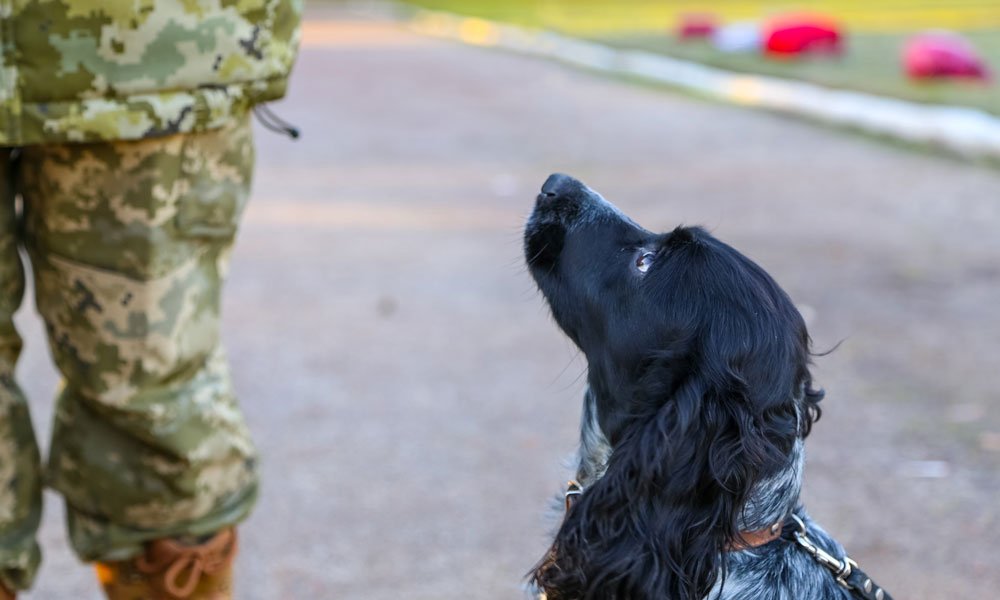
Humane Association: Why Aren’t Military Dogs Reunited With Their Owners?
Despite the American Humane Association's successful advocacy for a requirement that former tactical dogs be brought home after their service ends, the animals often do not end up with their former military handlers. AHA is backing an effort in Congress to investigate the issue.
Last year, an addition to the 2016 National Defense Authorization Act (NDAA) represented a big victory for the American Humane Association.
AHA, which lobbied for a provision that would ensure that retired military dogs are returned to American soil, says that despite that requirement, the animals often don’t end up with their former military handlers. A recent investigative report by the CBS affiliate in Dallas-Fort Worth found that veterans were often unable to get their dogs back from the military.
According to the report, the North Carolina dog-training facility K2 Solutions has given up more than 100 military dogs for adoption to either agencies or civilians—despite efforts by soldiers to get their dogs back.
“I was told his second handler had adopted him and that was the best news I was going to get. I was stupid enough to believe it and it killed me,” Sgt. Ryan Henderson said in an interview with the network.
Rep. Richard Hudson (R-NC) has called for an investigation into the situation, funds for which which are earmarked in the 2017 NDAA.
“These veterans deserve answers, which is why I am pursuing a formal investigation,” Hudson told the Richmond County Daily Journal this week.
(For its part, K2 Solutions—which is located just outside of Hudson’s congressional district—supports an investigation, saying in a letter to to the congressman [PDF] that the controversy “has actually caused a substantial disruption in the business of K2.”)
Having learned of the circumstances involving the military dogs, AHA President and CEO Robin Ganzert is backing Hudson’s efforts and has called for federal officials to give support to “our military heroes—on both ends of the leash.”
“After serving their country and saving the lives of an estimated 150 to 200 servicemen and women in the course of their careers, these dogs deserve to be reunited with their handlers here at home, where they can continue to save lives by helping their Battle Buddies cope with post-traumatic stress and other hidden wounds of war,” Ganzert said in a statement this week.
Prior to the passage of the 2016 NDAA, the AHA was privately funding the shipment of military dogs back to the United Stated. Previously, under military regulations, animals were not required to be brought back home.
(iStock/Thinkstock)






Comments